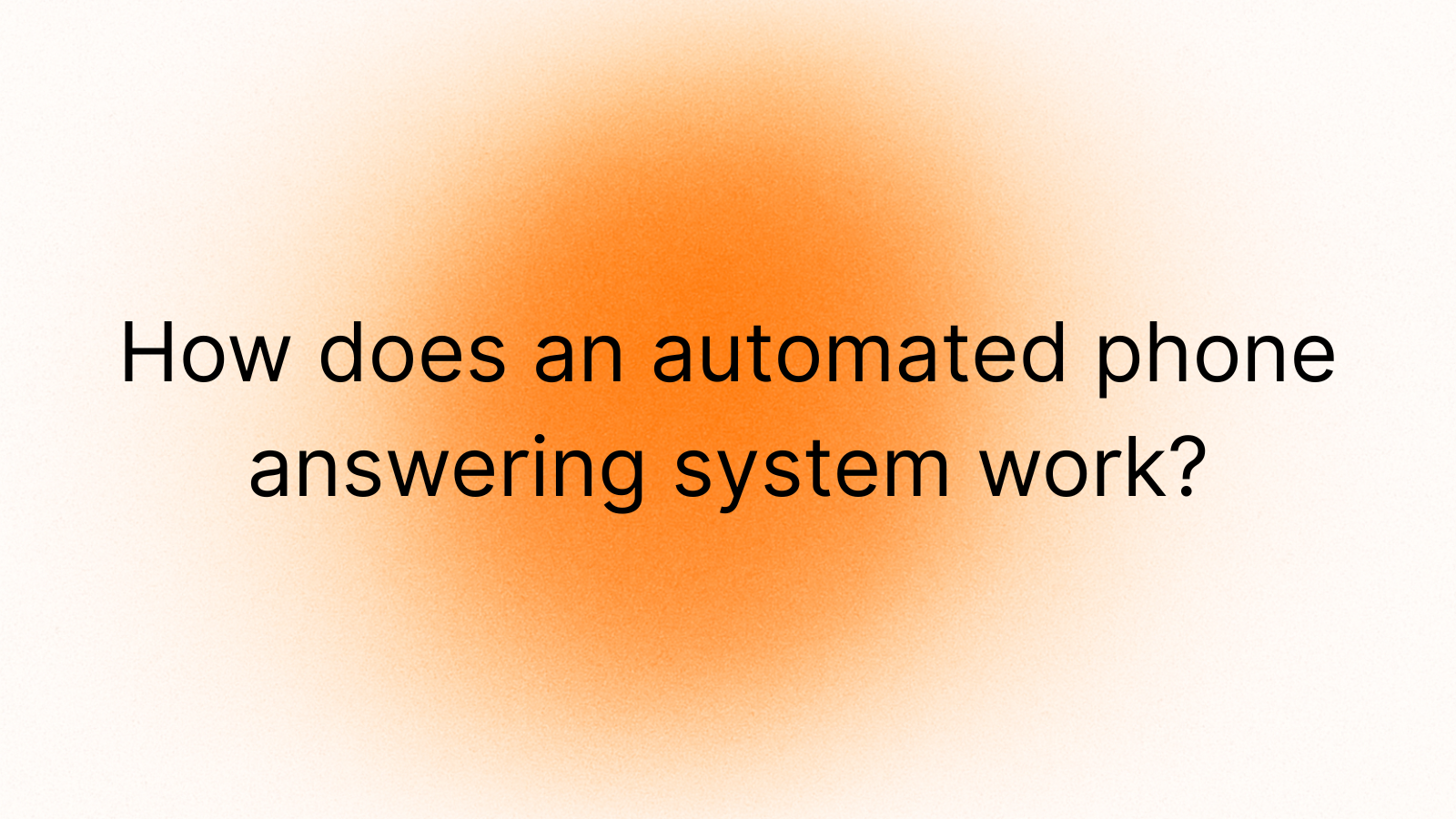A traditional human-based phone answering system often suffers from limited availability, high costs, or inadequate capacity — especially in small businesses or medical practices
When calls go unanswered, companies miss out on potential clients or damage their professional image
An automated phone answering solution using AI voice agents is always available, scalable on demand, and fully customizable. That’s why more and more businesses are turning to it as an alternative to classic human reception.
How an AI phone answering system works
An AI voice agent answers your calls, understands the caller’s intent, and either provides a direct answer or transfers the call if needed
Here’s how it works behind the scenes
Speech-to-text transcription: The caller's voice is instantly converted into text using a transcription engine
Intent recognition (LLM): The text is processed by a large language model (LLM) like ChatGPT or Mistral, which understands the request
Action or transfer: The AI agent can directly answer the question, schedule an appointment, or transfer the call to a human agent
External tool integration: The agent can interact with CRMs, calendars, or messaging systems
Text-to-speech (TTS): The agent’s response is read back in a clear and natural-sounding voice.
Most common use cases for automated phone answering
AI voice agents are used in a variety of real-world situations. Here are a few examples
Company receptionist: The voice agent greets callers and transfers them to the correct department or takes a message
B2B call screening: It filters incoming calls and sends important ones to a manager or sales team
Medical office assistant: It handles appointment bookings, confirmations, and reminders for patients
These scenarios illustrate how automation can be used for first-level call management, especially when the request is simple and repetitive
What an AI voice agent can do that a human can’tAI voice agents offer several unique advantages:24/7 availability: Unlike humans, AI never sleeps
Handles multiple calls at once: A single voice agent can manage dozens of calls simultaneously
Instant response times: No more queues or waiting music
Reliable and consistent service: Zero fatigue, no forgotten messages
Controlled costs: No salaries, training, or supervision needed.
Conclusion: An efficient and modern phone answering solution
Adopting an AI-powered phone receptionist means choosing efficiency, scalability, and professionalism. With solutions like Rounded, you can deploy a high-performance voice agent in just a few clicks — no technical skills required
Ready to improve your phone answering experience?👉 Discover how Rounded can help you deploy your own AI voice agent, fully integrated into your daily operations.

